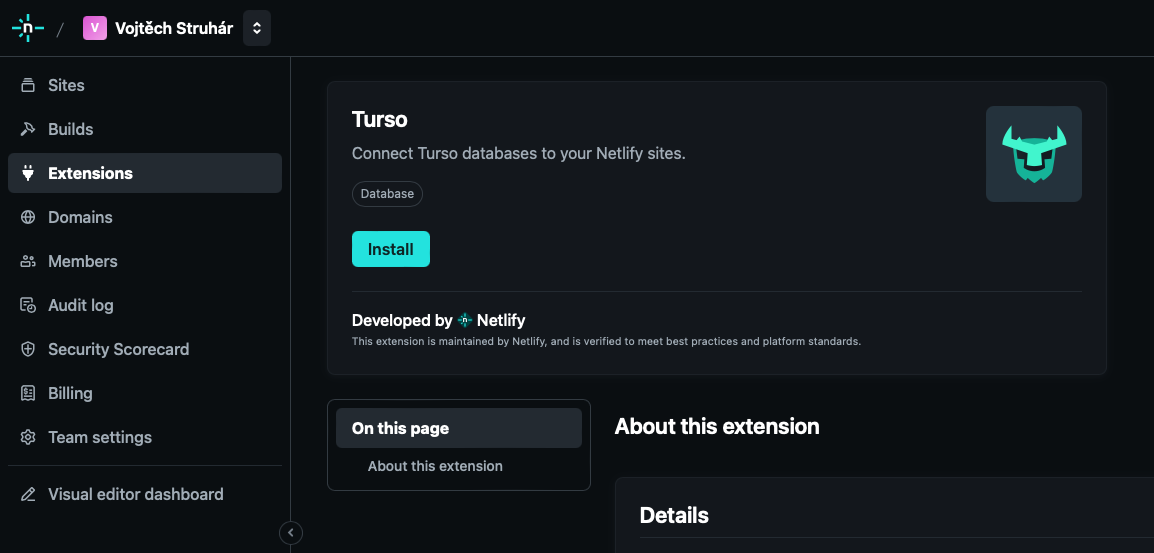Turso on Netlify
I mostly use Astro for my websites, so a backend-ish solution comes in handy from time to time. Today I decided to try out Netlify Functions + Turso database.
Netlify Functions
Getting started with Netlify Functions is definitely a good read.
I’d recommend JavaScript. It’s the most direct option - and I’m not doing anything complicated on the server now.
Basically - all you need to do is create a file at netlify/functions/hello.js in your project. From this file you export a handler function - and your Serverless function is born.
export const handler = async (event) => {
try {
return {
statusCode: 200,
body: "Hi, mom!"
};
} catch (error) {
return { statusCode: 500, body: error.toString() };
}
};Turso database
Creating a Turso database is easy enough. For more detail Netlify-Turso guide, but basically:
- Create a Group
- Create a Database in that Group
- Pop insto Drizzle Studio and initialize your tables. I’d advise to save what you wrote there into a file - for future reference and potential migrations!
- Save your database URL and API token somewhere
Back to Netlify
Turso has a Netlify setup guide. The most important thing (that I overlooked and that’s why I’m writing this article) is to install the Turso extension on Netlify!

Otherwise your function will fail trying to import a libSQL client. Now double check your Netlify functions environment variables and you’re ready to query your database!
import { createClient } from "@libsql/client";
const turso = createClient({
url: process.env.TURSO_DATABASE_URL,
authToken: process.env.TURSO_AUTH_TOKEN,
});
export const handler = async (event) => {
try {
const email = event.queryStringParameters.email;
validateEmail(email);
const host = event.headers["host"] || "-";
await turso.execute({
sql: "INSERT INTO newsletter (email, domain) VALUES(?, ?);",
args: [email, host],
});
return {
statusCode: 200,
};
} catch (error) {
return { statusCode: 500, body: error.toString() };
}
};
/** @param {string} email */
function validateEmail(email) {
if (email.length > 50) {
throw new Error("Invalid email");
}
}
Sidenote: On the free plan of Turso, there are like ~2s cold starts. Oh well. Think of the good price.
Use in Astro
In production, your functions will be deployed at /.netlify/functions/hello. This will not work with traditional astro dev, so I recommend installing the Netlify CLI and developing your project with netlify dev!
If you are using astro in static mode like I am, the best way to get a little interactivity is to just include a script tag and modify the website with plain old JavaScript. It’s almost becoming a lost art these days!
